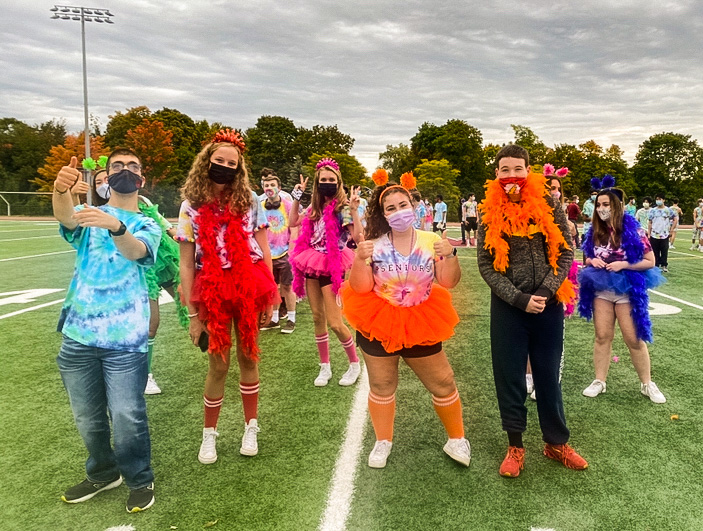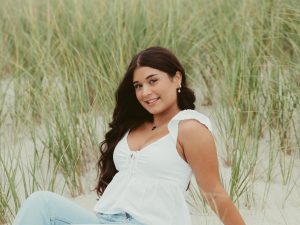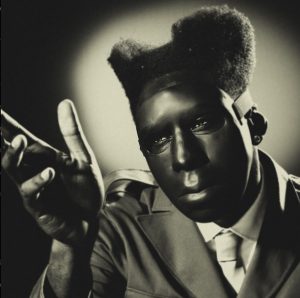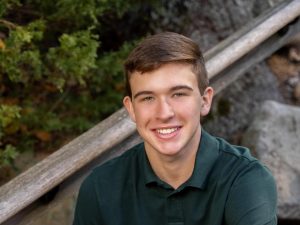Covid Impact On Intellectual And Developmental Disability Community In Westborough
Picture from the senior parade featuring Peter Alam, Jane Cusson, Author: Rachel Fredman, and Ben Simpson
November 23, 2020
Covid impacts all communities, all walks of life. We tend to immediately think of the pandemic’s influence on elderly or low-income families; however, the impacts of the pandemic on persons with disabilities is also an immense struggle most people have not taken into consideration.
The struggle starts here. I have a good friend who has autism, I had not been able to see him for the greater part of spring quarantine. Thankfully, he and I were able to make plans to go on an outdoor walk–with masks on. I have never seen him so excited to go for a walk, I could tell he missed seeing friends at school. The walk went well at first, yet as time went on his mask would fall down. This is not typically an issue for me as if my mask falls down I pick it back up, but my friend was unaware that his mask had fallen. I found myself constantly reminding him with little phrases like “mask up” or “over your nose.”
Now I was not offended that my friend could not keep his mask up, I knew he was not doing it on purpose, nor was he trying to put himself or me at risk, he simply was not aware. I was more concerned with what I saw, as wearing a mask is basic protection from this dangerous virus; and not being able to keep his mask up on a walk meant he may not be able to keep it up at school, at a store, at the doctor… anywhere.
In addition to the basic danger of not being able to keep a mask up, people who have autism are at higher risk to contract the virus in general.
The U.S. National Library of Medicine theorizes, “ASD patients present several comorbidities that usually potentialize their inflammatory system…we know that patients who manifest endogenous inflammation tend to present a worst prognostic… it is possible to notice a coincidence in immune and genetic factors in their physiopathology, particularly when it comes to comorbidities considered risk-factor for worse prognostic of the viral infection.”
To simplify, there is a direct correlation between having Autism and having a high-risk of contracting Covid-19.
Contracting the virus is just the first part of the struggle that persons with disabilities face during this pandemic. The second piece is social. Through school, my friends with IDD’s (Intellectual and Developmental Disabilities) are able to create friendships and gain social skills, in a similar manner, the rest of the population does.
My friends take integrated theater, gym, art, and many other courses to learn and create social relationships with the rest of the school. These classes now look different. My friends with IDD’s come to school all week while the rest of the school is attending in cohorts. The interactions they typically have are lacking, along with a solid routine- which is essential.
Outside of school, almost every student within the special education program is part of Best Buddies, a club in which I am co-president. Due to Covid restrictions, the club is fully remote-online.
This has been a struggle for the officers, but more importantly for the buddies who have disabilities such as Autism or IDD. It is difficult to plan a virtual event that meets every buddies’ needs. With buddies ranging from non-verbal to nonstop talkers, certain activities are not capable of satisfying everyone.
In addition, our club typically has peer buddies. It is undoubtedly the keystone of the club. Peer buddies are a 1-1 or 2-1 relationship of club members without an IDD and students with disabilities. We continued the program this year, with the goal that these friendships can still flourish; however, it is much more difficult to help influence the friendships and to encourage buddies and peer buddies to hang out outside of club zoom calls.
This has left buddies feeling lonely as they are not getting the same amount of quality time with their peer buddies. Also, it is difficult for newly-matched buddies to form connections as the peer buddies must facilitate almost-all connections with their buddies.
Our Best Buddies club is looking extremely different as we are adapting to these struggles. But that is not to say we have not had any successes within this challenging time. The other officers and I have devoted many hours via zoom to plan engaging activities such as Halloween and Thanksgiving events, charades, mad libs, crafts, and many more. Alongside various virtual events, we created club spirit wear, worked alongside the BORO Program, created new friendships and peer buddy-parent relationships. The Best Buddies club members, the amazing teachers at WHS, and supportive family members help to make this challenging time less difficult. Moreover, the struggles the IDD community are facing in this Covid era are apparent and need to be talked about.
In this time of global change new voices have emerged and the struggles of others are being brought to attention. However, people with disabilities such as Autism or IDD voices are not being heard to the same extent. If you are interested in learning more: make a quick google search, ask members of the IDD community questions, and feel free to comment down below.








Beth • Nov 24, 2020 at 10:55 pm
Exceptional article Rachel. Thank you so much for being the voice and showing he perspective for those who can’t.
Superbly written.